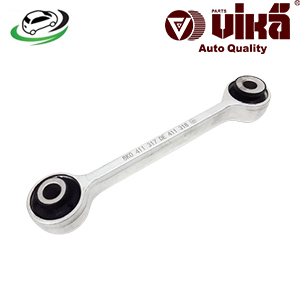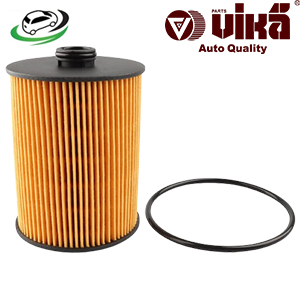-28%
Get Oil Filter Assy VW Passat B7/Touareg 3/Atlas/Atlas Cross Sport/CC 03H115562
Oil filters are essential components in an automobile’s engine, responsible for maintaining the cleanliness and efficiency of the engine oil. By removing contaminants and impurities, oil filters ensure that the engine runs smoothly and lasts longer. Here’s a detailed look at how oil filters work, their types, benefits, and maintenance.
The Role of Engine Oil
Before understanding oil filters, it’s important to know the role of engine oil. Engine oil lubricates the moving parts of the engine, reducing friction and wear. It also helps in cooling the engine by dissipating heat, cleaning the engine by trapping dirt and debris, and preventing corrosion.
Function of an Oil Filter
The primary function of an oil filter is to remove contaminants from the engine oil. These contaminants can include dirt, metal particles, carbon deposits, and other debris that can accumulate over time. By filtering out these impurities, the oil filter ensures that the engine oil remains clean and effective in lubricating the engine components.
Components of an Oil Filter
- Filter Medium: The filter medium is the material that traps contaminants. It is usually made of paper, synthetic fibers, or a combination of both.
- Base Plate: The base plate is the part of the filter that attaches to the engine. It has holes through which the oil enters and exits the filter.
- Gasket: The gasket creates a seal between the oil filter and the engine, preventing oil leaks.
- Center Tube: The center tube supports the filter medium and allows filtered oil to flow back into the engine.
- End Caps: These caps hold the filter medium in place and ensure that all the oil passes through the filter medium.
- Bypass Valve: In case the filter medium gets clogged, the bypass valve allows unfiltered oil to flow into the engine, ensuring that the engine doesn’t starve for oil.
- Anti-Drain Back Valve: This valve prevents oil from draining out of the filter when the engine is turned off, ensuring that the filter remains filled with oil for the next startup.
Types of Oil Filters
- Full-Flow Oil Filters: These filters clean all the oil that circulates through the engine. They are the most common type and are designed to provide minimal resistance to oil flow.
- Bypass Oil Filters: These filters clean only a small portion of the oil at a time. They are used in conjunction with full-flow filters and provide finer filtration.
- Spin-On Oil Filters: These are the most common type of oil filters, consisting of a metal canister with a replaceable filter element inside. They are easy to replace.
- Cartridge Oil Filters: These filters consist of a replaceable filter element that fits into a permanent housing on the engine. They are more environmentally friendly as only the filter element is replaced.
- Magnetic Oil Filters: These filters use magnets to attract and trap metal particles in the oil. They are often used in conjunction with other types of filters for additional protection.
Benefits of Oil Filters
1. Prolonged Engine Life
Contaminant Removal: Engine oil can accumulate dirt, metal particles, and other debris over time. Oil filters trap these contaminants, preventing them from circulating through the engine and causing wear and damage.
Reduced Wear and Tear: Clean oil reduces friction and wear on the engine’s moving parts. By keeping the oil free from abrasive particles, oil filters help maintain the engine’s components in good condition, thereby extending the engine’s lifespan.
2. Improved Engine Performance
Optimal Lubrication: Oil filters ensure that only clean oil circulates through the engine. This clean oil provides optimal lubrication, reducing friction between moving parts and allowing the engine to operate more smoothly and efficiently.
Consistent Oil Flow: High-quality oil filters maintain a consistent oil flow, ensuring that the engine receives an adequate supply of lubricating oil at all times. This consistency is vital for maintaining engine performance and preventing overheating.
3. Enhanced Fuel Efficiency
Reduced Engine Strain: An engine running on clean oil experiences less strain and operates more efficiently. This efficiency can lead to improved fuel economy, as the engine does not have to work as hard to perform the same tasks.
Better Combustion: Clean oil contributes to better combustion by ensuring that the engine’s internal components are well-lubricated and functioning correctly. Improved combustion efficiency can result in lower fuel consumption.
4. Lower Emissions
Cleaner Combustion Process: Oil filters help keep the engine oil clean, which in turn supports a cleaner combustion process. This reduces the production of harmful emissions, contributing to a decrease in the vehicle’s environmental impact.
Compliance with Emission Standards: Properly maintained oil filters help vehicles comply with emission regulations by ensuring that the engine runs efficiently and produces fewer pollutants.
5. Cost Savings
Preventive Maintenance: Regularly replacing oil filters is a relatively low-cost maintenance task that can prevent more expensive engine repairs down the line. Clean oil reduces the likelihood of engine damage, saving on repair costs.
Extended Oil Change Intervals: High-quality oil filters can extend the intervals between oil changes by keeping the oil cleaner for longer. This reduces the frequency of oil changes, leading to cost savings over time.
6. Improved Engine Reliability
Consistent Performance: By maintaining clean oil, oil filters ensure that the engine operates consistently and reliably. This reliability is crucial for avoiding unexpected breakdowns and ensuring the vehicle runs smoothly.
Protection in Extreme Conditions: Oil filters provide essential protection in extreme driving conditions, such as high temperatures, dusty environments, or heavy loads. They help the engine cope with these conditions by ensuring that the oil remains clean and effective.
7. Protection of Engine Components
Reduction of Corrosion: Contaminants in the oil can cause corrosion of engine components. Oil filters remove these contaminants, protecting the engine from potential damage due to corrosion.
Prevention of Blockages: By trapping debris and particles, oil filters prevent blockages in the oil passages, ensuring that the oil circulates freely and reaches all parts of the engine.
8. Enhanced Overall Vehicle Performance
Smooth Operation: Clean oil contributes to the smooth operation of the engine, which in turn enhances the overall performance of the vehicle. Drivers may notice improved acceleration, smoother idling, and better responsiveness.
Symptoms of a Clogged or Faulty Oil Filter
1. Low Oil Pressure
Symptom: A noticeable drop in oil pressure can indicate a clogged oil filter. Modern vehicles often have an oil pressure gauge or warning light on the dashboard.
Cause: When the oil filter is clogged, it restricts the flow of oil through the engine, leading to reduced oil pressure. This can cause insufficient lubrication of the engine parts.
Consequence: Prolonged low oil pressure can lead to severe engine damage due to increased friction and wear.
2. Engine Overheating
Symptom: The engine temperature gauge shows higher than normal temperatures, or the engine overheats frequently.
Cause: A clogged oil filter can prevent oil from flowing properly, reducing its ability to carry away heat from the engine components.
Consequence: Overheating can cause significant engine damage, including warped components and, in severe cases, engine failure.
3. Dirty Exhaust
Symptom: Excessive exhaust smoke or unusually dirty exhaust emissions.
Cause: A clogged oil filter can lead to dirty oil circulating through the engine, which can then burn off and produce dirty exhaust.
Consequence: Increased emissions can lead to failing emission tests and contribute to environmental pollution.
4. Unusual Engine Noises
Symptom: Unusual sounds such as ticking, knocking, or metallic noises coming from the engine.
Cause: Insufficient lubrication due to restricted oil flow can cause increased friction between engine parts, leading to unusual noises.
Consequence: Continued operation under these conditions can result in significant damage to the engine’s internal components.
5. Reduced Engine Performance
Symptom: The vehicle feels sluggish, has reduced acceleration, or lacks power.
Cause: Inadequate lubrication and increased friction from a clogged oil filter can cause the engine to struggle, reducing overall performance.
Consequence: Reduced performance not only affects driving experience but also puts extra strain on the engine.
6. Oil Leaks
Symptom: Visible oil leaks under the vehicle or around the oil filter.
Cause: A clogged oil filter can cause increased pressure within the oil system, potentially leading to leaks from seals and gaskets.
Consequence: Oil leaks can lead to low oil levels, causing further engine damage if not addressed promptly.
7. Check Engine Light
Symptom: The check engine light illuminates on the dashboard.
Cause: A clogged oil filter can trigger sensors in the engine to detect abnormalities, prompting the check engine light to turn on.
Consequence: Ignoring the check engine light can result in more severe issues down the line. It’s important to diagnose the problem as soon as the light appears.
8. Metallic Particles in Oil
Symptom: Metallic particles found in the oil during an oil change.
Cause: A clogged oil filter can fail to trap metal particles, allowing them to circulate through the engine.
Consequence: Metal particles can cause significant wear and damage to engine components, leading to expensive repairs.
9. Bypass Valve Activation
Symptom: Some oil filters have a bypass valve that opens when the filter is clogged. This can be indicated by a drop in oil pressure or other related symptoms.
Cause: The bypass valve allows unfiltered oil to flow through the engine to prevent oil starvation when the filter is clogged.
Consequence: While this prevents immediate damage, running the engine on unfiltered oil can cause long-term damage.
Oil Filter Maintenance and Replacement
- Regular Replacement: Oil filters should be replaced at regular intervals as specified by the vehicle manufacturer. This is usually done during oil changes.
- Use Quality Filters: Always use high-quality oil filters that meet or exceed the specifications for your vehicle.
- Check for Leaks: After replacing the oil filter, check for any leaks around the filter area.
- Dispose Properly: Dispose of used oil filters properly, as they contain contaminants that can harm the environment.
Follow us on Facebook for more parts.



